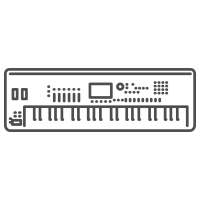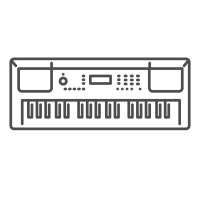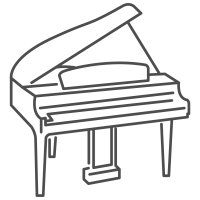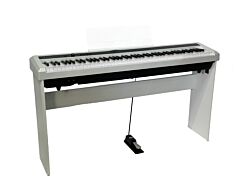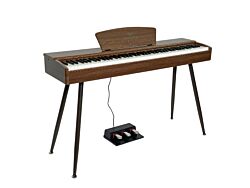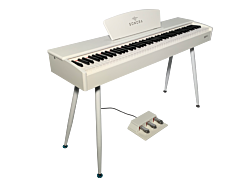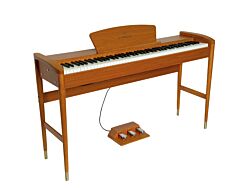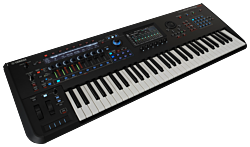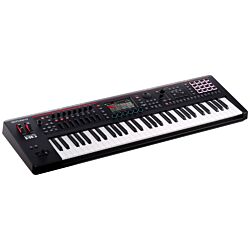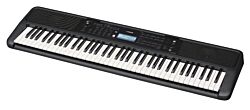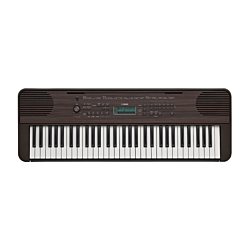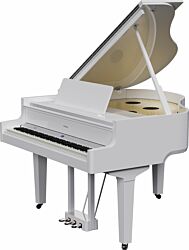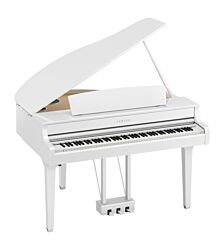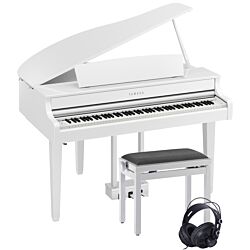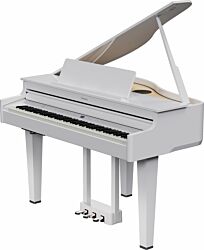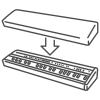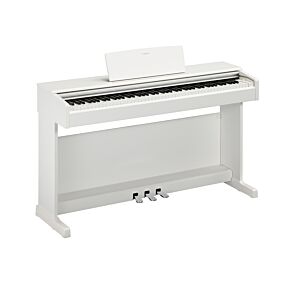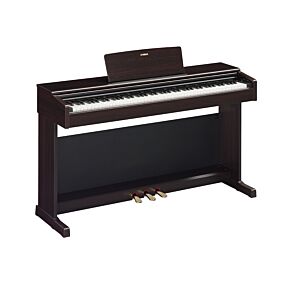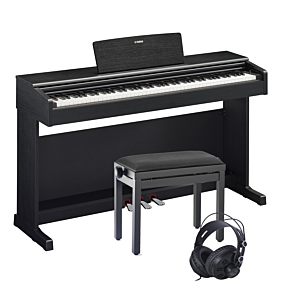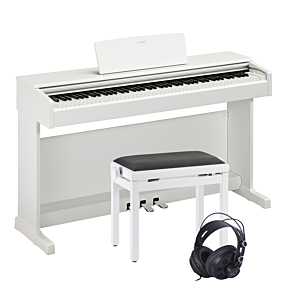Comparison: Hafnia HDP-110 vs Roland RP-107 vs Yamaha YDP-145
Three digital pianos for home use – but which one offers the best value for money?
When shopping for a digital piano for home use, it’s important to find the right balance between sound, playability, and features – without breaking the bank. In this article, we compare three popular models: the Hafnia HDP-110, Roland RP-107, and Yamaha YDP-145. All three are well-suited for both beginners and more experienced players.
Playing Experience
One of the most important aspects of a digital piano is the keyboard – how it feels under your fingers.

The Hafnia HDP-110 features an 88-key Progressive Hammer Action Keyboard that delivers an authentic touch, close to that of an acoustic piano. The keys respond naturally and dynamically, making the HDP-110 a great choice for both practicing and expressive playing.
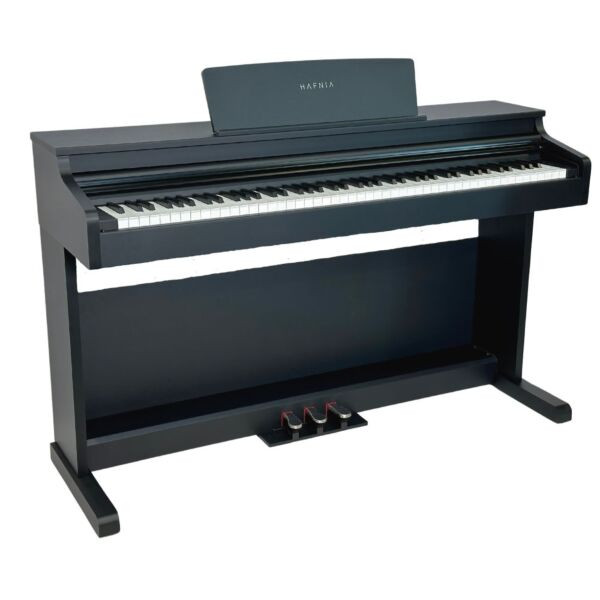
The Roland RP-107 is equipped with Roland’s PHA-4 Standard keyboard with escapement and synthetic ivory. It’s a fairly simple action, but durable and reliable.
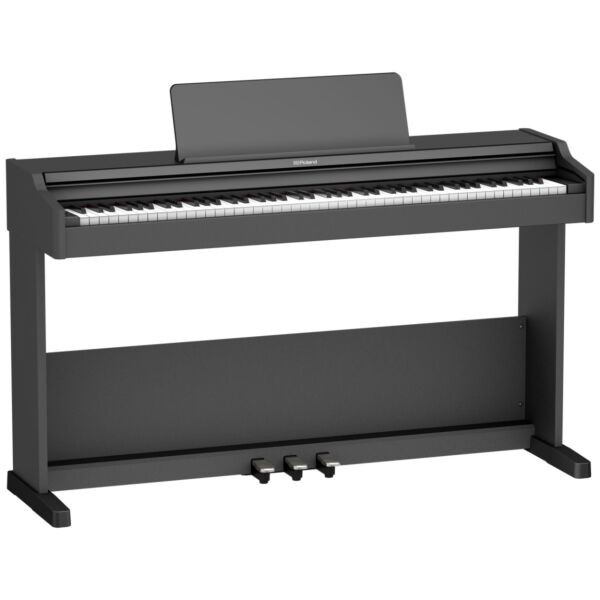
The Yamaha YDP-145 uses GHS (Graded Hammer Standard), which is a lighter action often aimed at beginners. It’s comfortable and easy to fall in love with.
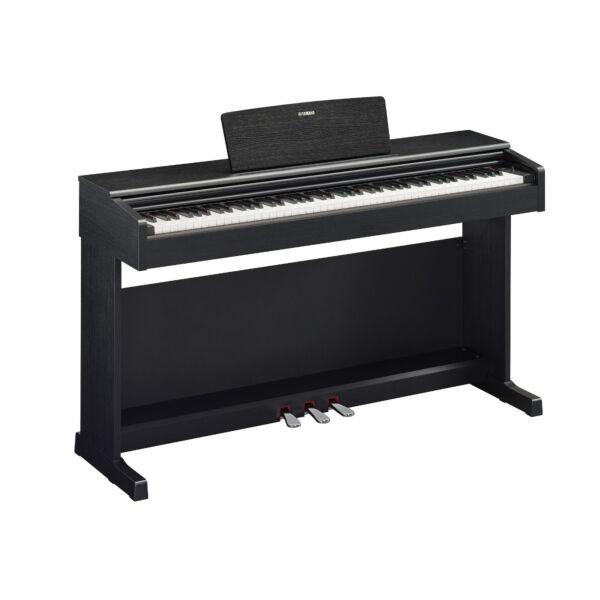
Sound and Polyphony
The Hafnia HDP-110 runs on the acclaimed French DREAM sound chip, delivering a rich and detailed piano tone. With 192-note polyphony, you can play complex pieces with plenty of sustain without notes dropping out. Speaker output is 2 x 10 W.
The Roland RP-107 uses Roland’s SuperNATURAL engine, offering a clear and modern sound character. However, with only 2 x 8 W speaker output, the sound may feel slightly less full in larger rooms. On the other hand, it boasts an impressive 256-note polyphony.
The Yamaha YDP-145 features Yamaha’s signature CFX concert grand piano tone – beautifully balanced and elegant. Like the Hafnia, it offers 192-note polyphony, but has a lower 2 x 8 W output.

Connectivity and Features
Bluetooth is becoming increasingly important for both practice and music production.
The Hafnia HDP-110 includes Bluetooth Audio & MIDI, so you can stream music wirelessly and connect to apps like Simply Piano or Flowkey – no cables needed.
The Roland RP-107 also offers Bluetooth Audio & MIDI, letting you connect wirelessly to your devices.
The Yamaha YDP-145, however, lacks Bluetooth, making it less flexible in today’s digital music environment.

All three models come with USB to Host, a headphone output, and a three-pedal unit with traditional functionality (sustain, sostenuto, soft).
The HDP-110 is the only one of the three to include both audio in/out jack connections.
Design and Build Quality
Design is a matter of taste, and all three pianos share a fairly similar aesthetic. The Yamaha comes in three finishes: black, white, and rosewood. The Hafnia is available in black or white. The Roland is only available in black.
Visually, the Hafnia stands out with a more classic, matte black finish, while the Roland and Yamaha have a slightly more minimal and lightweight look – both in terms of weight and visual presence.

Comparison Table
| Model | Hafnia HDP-110 | Roland RP-107 | Yamaha YDP-145 |
|---|---|---|---|
| Sound Engine | DREAM sound chip | SuperNATURAL piano sampling | Yamaha CFX piano sound |
| Keyboard | 88-key Progressive Hammer Action | PHA-4 Standard Synthetic ivory, escapement |
GHS Synthetic ivory, graded weighting |
| Speakers | 10 W x 2 2 speakers: 12 cm x 2 |
8 W x 2 2 speakers: 12 cm x 2 |
8 W x 2 2 speakers: 12 cm x 2 |
| Bluetooth | Yes (Audio & MIDI) | Yes (Audio & MIDI) | No |
| Polyphony | 192 | 256 | 192 |
| Tuning | Yes | Yes | Yes |
| Number of Sounds | 8 | 15 | 10 |
| Weight | 46 kg | 37.5 kg | 38 kg |
Conclusion
If you’re looking for a full-sized digital piano that offers an authentic playing feel, rich sound, Bluetooth functionality, and a timeless design – all at a reasonable price – the Hafnia HDP-110 is a strong contender.
The Roland RP-107 and Yamaha YDP-145 are both solid instruments, but the HDP-110 manages to deliver a complete package that’s usually only found in higher price ranges.


